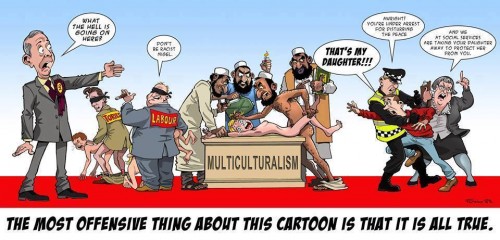Seth Barrett Tillman (posting also at The New Reform Club):
I think many do not quite follow Justice Thomas.
This might help.
Seth
The corollary of that principle is that human dignity cannot be taken away by the government. Slaves did not lose their dignity (any more than they lost their humanity) because the government allowed them to be enslaved. Those held in internment camps did not lose their dignity because the government confined them. And those denied governmental benefits certainly do not lose their dignity because the government denies them those benefits. The government cannot bestow dignity, and it cannot take it away.
Justice Thomas in Obergefell v. Hodges, 576 U.S. ____, at *17 (2015) (dissenting) [pdf]
——————————
Mrs Thatcher came only twice [to the Conservative Philosophy Group], once as prime minister. That was the occasion for a notable non-meeting of minds. Edward Norman (then Dean of Peterhouse) had attempted to mount a Christian argument for nuclear weapons. The discussion moved on to ‘Western values’. Mrs Thatcher said (in effect) that Norman had shown that the Bomb was necessary for the defence of our values. [Enoch] Powell: ‘No, we do not fight for values. I would fight for this country even if it had a communist government.’ Thatcher (it was just before the Argentinian invasion of the Falklands): ‘Nonsense, Enoch. If I send British troops abroad, it will be to defend our values.’ ‘No, Prime Minister, values exist in a transcendental realm, beyond space and time. They can neither be fought for, nor destroyed.’ Mrs Thatcher looked utterly baffled. She had just been presented with the difference between Toryism and American Republicanism. (Mr Blair would have been equally baffled.)
